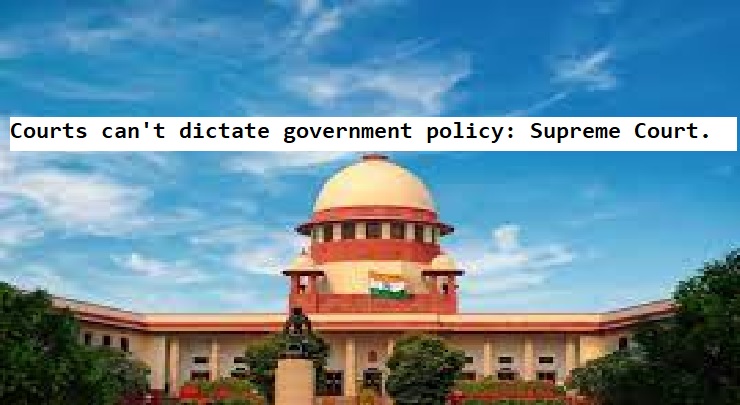


The Supreme Court has affirmed that a Tribunal lacks the authority to mandate the formulation of government policy. This pronouncement arose from a Union of India appeal under Section 31(1) of the Armed Forces Tribunal Act, 2007, challenging the judgment of the Armed Forces Tribunal, New Delhi (Principal Bench). Justices Abhay S. Oka and Sanjay Karol, constituting a two-Judge Bench, underscored that a Tribunal, confined by legislative boundaries, cannot compel policy creation. The court highlighted the distinction between its role in Writ jurisdiction and the limited power to direct policy formation, emphasizing that a Tribunal, even within Article 226 jurisdiction, cannot lawfully instruct the government to frame policies.
The Bench emphasized the judiciary's non-involvement in policymaking, reiterating that the Tribunal, as a quasi-judicial entity, operates within statutory confines. While acknowledging the Tribunal's competence in adjudicating disputes related to promotions and vacancies, it clarified that directing policy formation is beyond its purview. The judgment reasoned that the Tribunal cannot dictate the manner in which policies are devised by those responsible for policymaking.
The case in question involved a respondent commissioned in the Administrative Branch of the Indian Air Force in 1982. Having voluntarily completed the Air Force Judge Advocate course in 1989, the respondent served in the JAG department, eventually being appointed as the Judge Advocate General (Air) in 2010 while holding the rank of Group Captain. Subsequently promoted to Air Commodore in 2011, he received the acting rank to fulfill the JAG (Air) position. Despite meeting the criteria for promotion to Air Vice Marshal (AVM), the respondent faced challenges as no promotion board was formed to consider his candidacy.
The Tribunal highlighted the respondent's grievance concerning the failure to form a promotion board for his elevation to the position of Air Vice Marshal. The respondent participated in the Promotion Board of 2015, which recommended him for the AVM position. However, the Ministry of Defence did not endorse this recommendation. The Tribunal rejected the challenge, emphasizing that the respondent's participation in the promotion process barred subsequent objections to policy/methods after being unsuccessful in securing promotion.
The Court, while acknowledging the accepted age of superannuation, criticized the Tribunal's order as lacking a basis. It emphasized that challenging the promotion process post-participation, especially after being deemed unsuccessful, does not constitute a valid ground to contest the policy/method. The Court underscored the principle that the respondent's challenge, rooted in the non-formation of a policy for AVM JAG (Air) vacancy, was untenable since he participated in the 2015 Promotion Board.
In essence, the judgment reiterates the judiciary's limitation in directing policymaking and emphasizes that quasi-judicial bodies, such as Tribunals, must adhere to statutory confines. The Court upheld the distinction between resolving disputes related to promotions and vacancies and the authority to mandate policy formation. The specific case involving the respondent's promotion highlighted the importance of procedural regularity and timeliness in raising objections to policies, particularly in the context of military appointments and promotions.
TAGS: Supreme Court Tribunal Government policy Armed Forces Tribunal Act quasi-judicial jurisdiction Air Force promotion